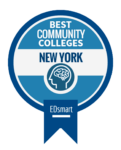Adult Educational Opportunity Center (AEOC)
The purpose of AEOC is to provide free support to aid participants in our community in applying to, funding, and enrolling in further education. AEOC is here to help you achieve all of your educational and career goals and dreams!
What is Taxable Income?(AEOC)
On the AEOC application, you will be asked to disclose the range of your taxable income, which is required per our grant regulations. If students are determined independent per financial aid standards (typically all persons under 24 with no spouse or dependents), they will need to use their parent(s)/guardian(s)’ taxable income and get a parent/guardian signature for verification.
Taxable income is the amount of income used to calculate how much tax an individual owes the government in a given tax year. This is different from your salary or your gross income. In almost every situation, taxable income is less than your gross income. Taxable income can be found on either the IRS Form 1040 on Line 11b OR the NYS Form 201-IT on line 37 or 38. If you cannot readily find this form, you can calculate your taxable income using the formula below:
Gross Income – Above Line Deductions – Below Line Deductions = Taxable Income
Terms
Gross Income includes, but is not limited to, salaries, wages, bonuses, tips, rental income, some government benefits (i.e. unemployment, disability, etc.), dividends, capital gains, interest income, fringe benefits, royalties, and retirement distributions. If you are married and filed your 2019 taxes jointly, you must include all your spouse’s income as well.
Note: Any income that is explicitly tax-exempt does not count towards this number (i.e. child support payments, veterans’ benefits, welfare, workers’ comp, SSI, etc.)
Above the Line Deductions can include, but are not limited to, rental deductions, some business deductions, stock losses, moving expenses, student loan interest paid, and alimony.
Below the Line Deductions are either standard or itemized. Typically, individuals only itemize their deductions if it will add up to more than the standard deduction.
Example Standard Deduction Amounts
Person A and Person B are married and filed their 2019 taxes jointly. Person A makes $20,000 a year and Person B makes $35,000 a year with no additional income, making their gross income $55,000. They have $0 in above the line deductions and took the standard deduction of $24,400. Therefore, their estimated taxable income is $30,600.

